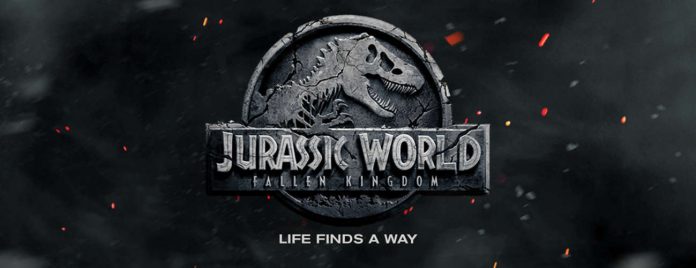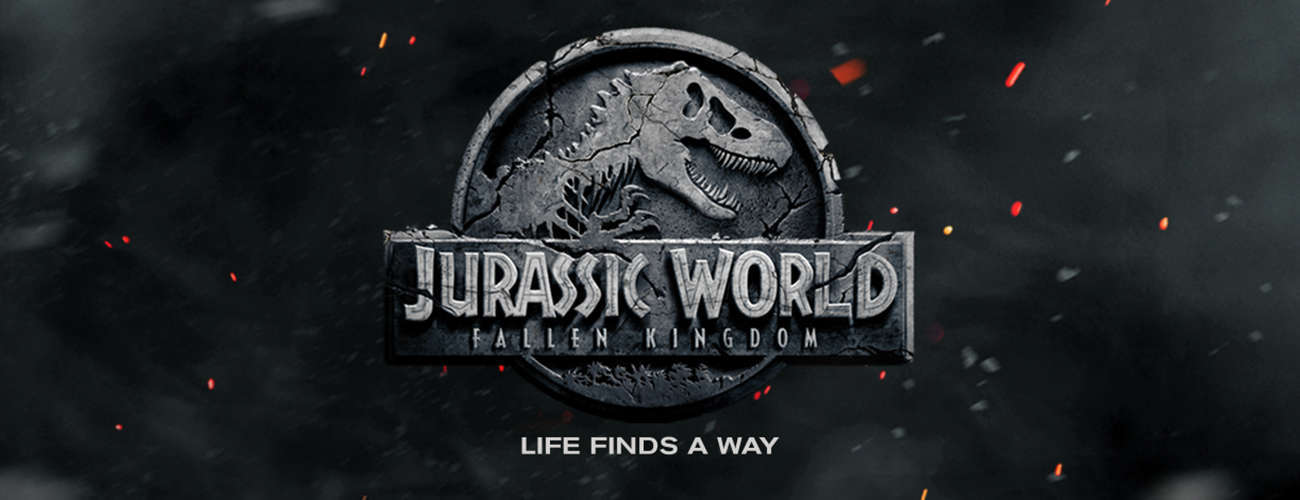The problem with “anticipated” releases is, the studios know people will go out and see it, regardless of how good it is. This gives them an excuse to cobble together any old garbage and still have it be the smash-hit of the summer.
I’m not saying Jurassic World: Fallen Kingdom is trash, but I am saying that yet another beloved franchise has begun its long, swirly descent down the drain.
Solo: A Star Wars Story made me love the franchise again, after a less-than-stellar Rogue One and the it-gets-worse-the-more-you-think-about-it Episode IX: The Last Jedi. Likewise, the Alien brand had a bit of a resurgence with Prometheus—asking new questions, charting a new direction for the franchise—after two direct-sequel flops to James Cameron’s great 1986 Aliens, and a duology of panned cross-overs with Predator. Then, Covenant happened, and I didn’t even want to dignify it with a review; I hyped myself up so much, climbed so high to the peak of Mt. Hopes ‘n’ Dreams, that the fall was even more painful.
At least Alien: Covenant wasn’t at the theatre for that long… Fallen Kingdom, however—with the business it’s been doing—will be here at least through mid-July.
Okay, rant over. Onto the actual review…
My main gripes lay with Fallen Kingdom’s structure; as YouTube’s Looper put it, each act is its own mini-movie, and I felt that whiplash of, suddenly, everything being “tied up” in the final ten minutes. What the 2015 soft reboot did well was reinvigorate interest in the brand—it’s freakin’ dinosaurs, how was there ever interest lost?—and take it in a direction that fans had been looking forward to for a long time: A fully-realized theme park. John Hammond’s dream. What director-producer duo Colin Trevorrow and Stephen Spielberg did was recapture the magic of the original two films (not roping in JP III, the Alien: Resurrection of dino flicks), while also pushing things forward—the corruption of the once-innocent Dr. Wu, genetic experimentation to the point of a Frankenstein’s Monster scenario, and characters with both depth and ability to carry an audience’s interest for more than a single scene.
Here, though, there was one character I really wanted chomped in the first twenty ten minutes, and he’d barely spoken any lines, and another that was so uppity and clearly a parody of everything wrong with youth culture today that she could’ve disappeared after the volcano sequence, and I wouldn’t’ve thought twice about it. Hell, I cared more for Billy from JP III than I did about either of them.
Oh, shoot…I brought up a better movie.
It’s a carbon-copy of The Lost World, which, by JP standards, still holds up. Unlike that film, though, Fallen Kingdom has next-to-no Ian Malcolm (if you couldn’t tell by the trailers), and an even more contrived premise. Jokes fall flat, characters—outside of our main two, and a poorly-utilized James Cromwell—would have a hard time keeping up with wet cardboard in a “who’s the more interesting?” contest, and so many sub-plots that I lost count. Tropes of the franchise are limelighted to the point of incredibility, and my suspension of disbelief had to take a break about half-way through the first-half action set-piece to keep from jumping from atop Mt. Hopes ‘n’ Dreams.
Top-billed stars Chris Pratt and Bryce Dallas Howard are still cool—a lot of their same charm and character carries over from the first Jurassic World, and even has a chance to arc and develop through all this copycat tedium. That, at least, I was able to enjoy. The score is recollective, and Michael Giacchino did a wonderful job recalling old themes as well as warping and reinventing new ones. I definitely want a baby/teacup raptor, now, and the practical effects used in a lot of the scenes, on their own, deserves an ovation from me; that filmmakers today can still blend the practical and the digital and make it actually blend together is marvelous—others may not know what they’re looking at, but I do, and I can say that the work put in in that department was well worth it.
Caveat: InGen has become the Weyland-Yutani of the Jurassic franchise—try and try again with the hybridization of dinosaur genomes, as W-Y kept salivating after the capture of a live Xenomorph. I believe, with such monumental, repeat failures, that the textbook definition of “insanity” can be brought into play—again, I know that’s the point, emphasizing the lengths to which mad scientists will go once genetic power is discovered, but my suspension of disbelief (now present for so long during the run-time that it had become a physical creature in the theatre in the seat beside me) grabbed for my hand in order to calm its frail, shaking body. Thus, we’re bottlenecked as far as future plots go—it can head in any of just a few directions, wherever Universal decides it should drag this fossilizing husk of a once-revered franchise next.
On the upside, it made me want to re-watch Spielberg’s 1993 classic, in contrast. So…pseudo-win?
Final ‘Risk Assessment: ***/**. Here’s hoping Shane Black’s The Predator—premiering this September—doesn’t face-plant the one stand-alone franchise to have survived the last century fairly-unscathed…


